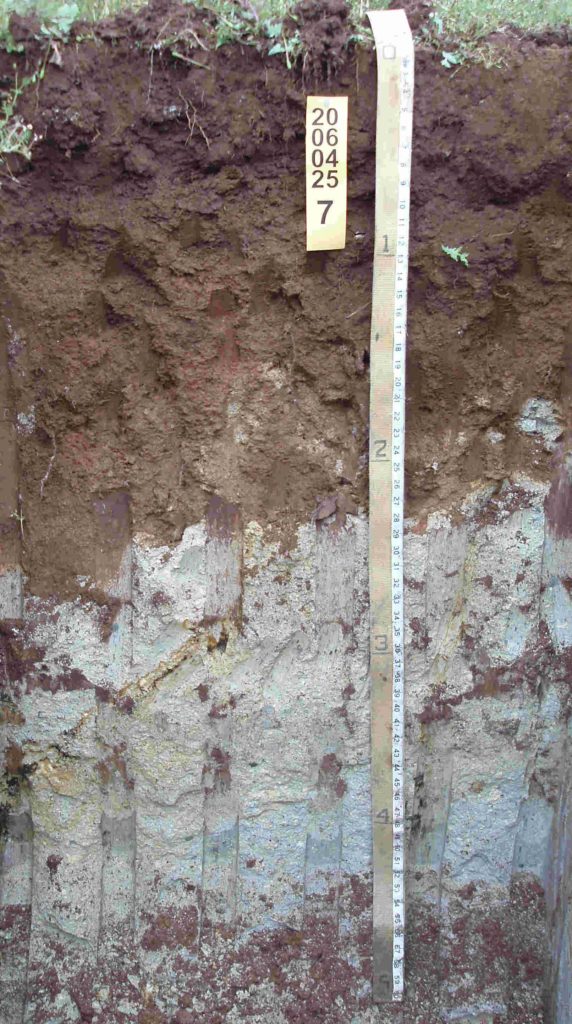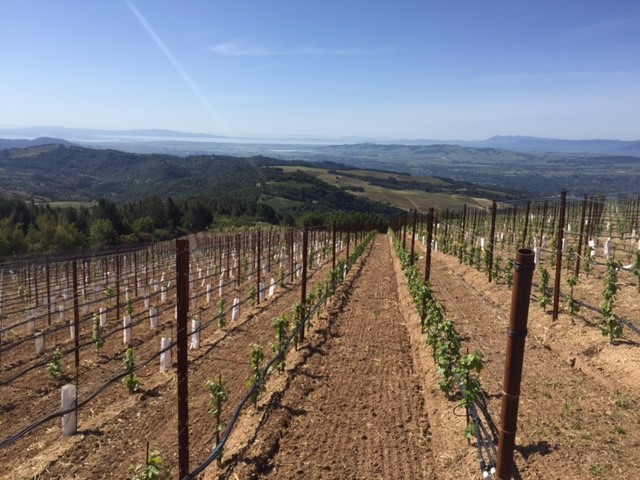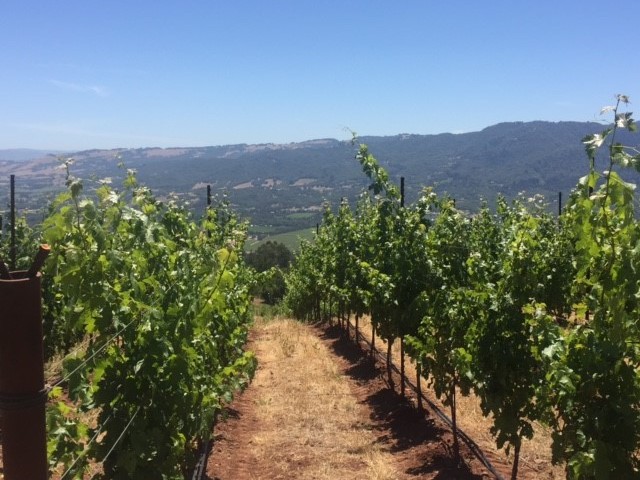MOON MOUNTAIN DISTRICT
SOARING VINEYARD
Moon Mountain AVA, Sonoma Valley
As dramatic as the wines it produces, Mountain Terraces Vineyard soars to 2,000 ft on the western slopes of the Mayacamas in Sonoma’s tiny Moon Mountain AVA. Occupying 125 acres of its most dynamic terrain, Mountain Terraces Vineyard shares the coveted AVA’s provenance for strikingly intense mountain-grown Cabernet Sauvignon.
A total of 65 acres are under vine, planted predominantly to Cabernet Sauvignon with small amounts of Cabernet Franc, Merlot, Petit Verdot, Malbec, Grenache and Viognier making up the balance.
The vineyard blocks are divided by distinct ribbons of white, brown and red volcanic soils which individually produce wines ranging from elegant to intensely brooding and combined, and create blends layered with rich complexity. Naturally low crop yields concentrate flavors while meticulous vine-by-vine farming and mostly organic practices ensure wines with strong varietal flavor and distinct site signature.
OUR WINES
In December 2012 Steve asked Daniel to take a look at a property in the Moon Mountain Viticulture District called Mountain Terraces Vineyard, a 120-acre property with 65 acres mostly planted to Cabernet Sauvignon that he was considering purchasing.
Dr. Daniel Roberts’ Analysis of Mountain Terraces Vineyard
1.0 Temperature
The popular pronouncement about a region’s “warm days and cool nights” is not necessarily describing an ideal situation, though if a region has warm or hot days, cool nights are essential to prevent rapid acid metabolism in the fruit during ripening. A climate with warm/hot days and cool nights produces a different wine style than a climate with similar heat summation units having warm days and relatively warm nights (figure 1.0). A Climate with warm days and cools nights produces a different wine style then a climate with similar heat summation units having warm days and relatively warm nights like Mountain Terraces.
Figure 1.0: From veraison to harvest, average diurnal temperature change for valley floor (sea level), middle mountain (1000 ft) and mountain top (2000 ft).
Hence, for any given grape variety, climates with smaller diurnal temperature swings generally ripen fruit at lower sugar concentrations than do climates with large diurnal temperature swings. Vineyard sites with smaller diurnal fluctuations allow the grape growers or winemakers to have more latitude about when the fruit is harvested, since they will not consistently be considering harvest when fruit has begun to collapse due to excessive sugar content. Sugar (Brix) is a false indicator of true ripeness, at Mountain Terraces due to the smaller diurnal temperature swings, fruit is allowed to reach true ripeness before the fruit collapses due to high sugar content (Brix) and be forced to pick before optimal Ripeness.
2.0 Soils
In general, mountain soils develop from rock. In the Moon Mountain AVA, many of the soils develop from volcanic rock such as Andesite, Basalt and Rhyolite. These soils are well drained and have very little nutrient content. Soils derived from Rhyolite, however, can be very high in potassium (figure 2.0).
At Mountain Terraces sufficient soil analysis were done to determine soil variation as to the amount and depth to the volcanic ash. The soil determines rootstock and in soils derived from volcanic ash, 420A rootstock is the best option. The high potassium content of the soil can influence a wines pH and 420A rootstock does not take in the excess soil potassium.

Figure 2.0. Soil derived from Rhyolite on Mountain Terraces, Moon Mountain AVA. The grayish white material is the Rhyolite.
3.0 Mountain Terraces
We have discussed two aspects of Terroir, climate (temperature) and soils. The third aspect which many wine writers ignore is human. You can purchase the perfect site in terms of climate and soil, but still ruin the site by poor decisions in planting.
When Ledson Winery purchased the Mountain Terraces property, the vineyards were a mess. The fruit was good due to the climate and the soil but we knew the fruit could be improved through more attention to the detail of pruning, irrigation and fertigation. Years and many thousands of dollars later, the wine coming from the original vineyards is vastly improved. A serious replanting program has been started with better rootstocks, Cabernet Sauvignon clones, and attention to row direction (figures 3.0, 3.1 and 3.2). The wines coming from the new planting are exceptional.
The vines are planted at 6 ft between the rows and 4 ft between the vines pruned to two canes (double guyot) and the row direction is North to South.

Figure 3.0. Newly planted vines on Mountain Terraces.

Figure 3.1. New Vines training on Mountain Terraces.

Figure 3.2. Mountain Terraces new vineyard, second crop.
4.0 Summary
Mountain Terraces is unique due to climate, soil and management. The human factor, management, is actually just as important as climate and soil. The French word vigneron refers to a family that farms the grapes and makes the wine, which certainly is apropos for Steve Ledson.
Steve Ledson’s unrelenting quest for perfection is very prominent at Mountain Terraces Vineyard and is proven in every bottle of wine from this incredible vineyard site.

